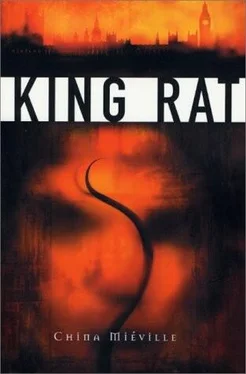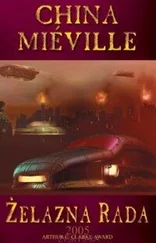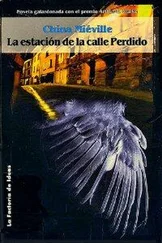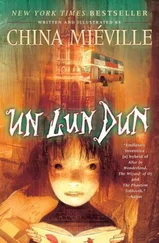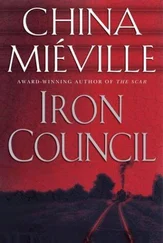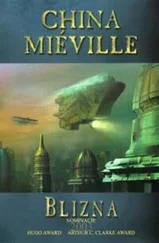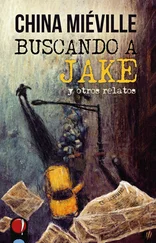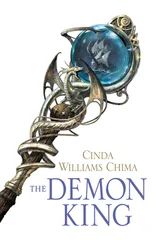And Saul — Fabian was angry with Saul. He found it amazing his friend had not contacted him. He understood that something unbelievable must be going on in Saul’s life, that it would take a lot to cut Fabian off so completely, but it still hurt him. And he was desperate to know what was happening! He was sometimes afraid now that Saul was dead, that the police had killed him and had concocted a bizarre story to allay suspicion, or that he was caught up in something huge — vague images of Triads flashed through Fabian’s mind, and the London chapter of the Mafia, and God-knew-what — and that he had been routinely eliminated.
Often that seemed the likeliest explanation, the only thing that could explain the deaths of the police and Saul’s escape, but Fabian could not believe he would have known nothing about his friend’s involvement. It seemed unbelievable. And then he was forced to consider the possibility that Saul had killed those men — and his father, which he did not believe, definitely — but then… what was happening?
Fabian stared around him at his room, a tip of paint and record covers and clothes and CDs and posters and cups and wrappers and dirt and paper and books and pads and pens and canvas and bits of glass for sculptures and plates and postcards and peeling wallpaper. He was lonely and pissed off.
The view was so familiar Natasha did not see it. It was a tabula rasa to her, a white space on which she could impose her tunes. She had gazed out at it for so many hours and days, especially since Saul disappeared and Pete appeared, that she had achieved a Zen-like transcendence of it. She transcribed its features into her mind as nothingness.
First the net curtains, a tawdry throwback to the previous occupant that she had never bothered to get rid of. They moved slightly, a constant whiteness with flickering edges. Through this veil the trees, just at the level where the boughs thrust outward from the body. Stripped by winter, black branches clutching. So a film of curtain, then the twisted knots of wood, dark and intricate, a random lattice of twigs and thick limbs. Beyond that a street lamp.
After dark when it had rained, she would sit at her window and poke her head out from under the net curtains and stare at that lamp through the tree outside. Its rays would pass through the thicket, lighting up the inside of each branch, surrounding the streetlight with thin circles of illuminated wood, composites of a thousand tiny wet sections reflecting the light. As Natasha moved her head, the streetlight’s halo moved with it behind the tree. The lamp sat like a fat spider in the centre of a wooden web.
Now it was day and the lamp was nothing, just another washed-out shape beyond the curtain, a shape Natasha was not seeing as she stared at it. Beyond it the houses on the other side of the street. The child’s bedroom, the little study. The kitchen. The roofs, the slate anaemic, its rough red invisible inside the room. Behind the roofs the jutting landmarks, the estates that stretched up over West London, squat and huge and awe-inspiring. Behind them a sky that was all cloud, a shifting scudding mass whose details twisted and turned and decayed leaving the totality unchanged.
Natasha knew every part of this diorama. Had anything been missing or different, she would have seen it immediately. Instead she saw that it was as it should be, and therefore she did not see it at all. In her careful itemization of its qualities, it became invisible.
She felt as if she would float into the clouds, sometimes.
She did not feel tethered at all.
She thought about Saul but she thought about basslines as well, and she wondered where he was, and she heard a stunning track suggest itself in her mind. She wondered where Pete was. She wanted to hear his flute. It was time to put some layers down on to Wind City. She realized that she could not really think straight. She had not felt secure and engaged for some days now. But she was eager to lay down some more flute.
Pared down as it was, Natasha wanted to strip the room of all its extraneous objects, the bed, the telephone, the cups she saw by her pillow. She wanted to close the door and ignore the rest of her flat and just stare at that window, at that view, through the dilute milk interference of the curtain. She wanted no sounds except the tiny murmurings of the street and her own sequencer, weaving her tune, making Wind City what she wanted.
A couple of weeks ago she had mentioned the track to Fabian when he had called her, and he had made a joke about the title: about eating too many beans, or something cretinous like that. She had brought the call to an abrupt close, and when she had put the receiver down she had cursed him, sworn at him, told him how fucking stupid and crass he was. A part of her had tried to evaluate his comment dispassionately, tried to see it as he saw it, but even as she understood she saw how wrong he was. Her opinion of Fabian was shaken. Maybe he had to hear the track, she concluded charitably.
He could not hear the word Wind without remembering his little idiot jokes in playgrounds, the puerile scatology she could not empathize with. It was a boy thing. How could she make him see what she saw when she named that track, when she played it and tweaked it and made it work so well it made her chest hollow?
To start, a tiny piano run from some histrionic Swingbeat rubbish. She had stripped it down so severely that she had dehumanized it. This was something different from her usual approach. The piano, the instrument that so often ruined Jungle, making her think of Happy House and idiotic Ibiza clubs, here turned into an instrument that signalled the destruction of anything human in this world. Deeply plaintive and melancholy, but ghostly. The piano tried to remember melancholia, and presented it as if for approval. Is this it? Is this sadness? it asked. I can’t recall. And under the piano she faded in, for a fraction of a second, subliminal, she laid down a sample of radio static.
She had sought it for a long time, recording great swathes of sound from all the bands on her radio, rejecting them all, until she found and seized and created exactly what she wanted. And here she hinted at it.
The beat kicked in after the piano went around and came around several times, each time separated by a severe gap, a rupture in the music. And the beat was all snares at first, fast and dreamy, and a sound like a choir welled up and then resolved itself into electronic orchestration, fabricated emotion, a failed search for feeling.
And then the bassline.
A minimal program, a single thud, pause, another thud, pause, another, longer pause… double thud and back to the beginning. And underneath it all she began to make those snatches of radio static a little longer, and longer still, and looping them more and more randomly, until it was a constant, shifting refrain under the beat. A chunk of interference that sounded like someone trying to break out of white noise. She was proud of that static, had created it by finding a station on shortwave and then just missing it, so that the peaks and troughs of the crackling could have been voices, eager to make contact, and failing… or they could have just been static.
The radio existed to communicate. But here it was failing, it had gone rogue, it had forgotten its purpose like the piano, and the people could not reclaim the city.
Because it was a city Natasha saw as she listened. She sped through the air at huge speed between vast crumbling buildings, everything grey, towering and enormous and flattened, variegated and empty, unclaimed. And Natasha painted this picture carefully, took a long time creating it, dropping a hundred hints of humanity into the track, hints that could not deliver, dead ends, disappointments.
Читать дальше
